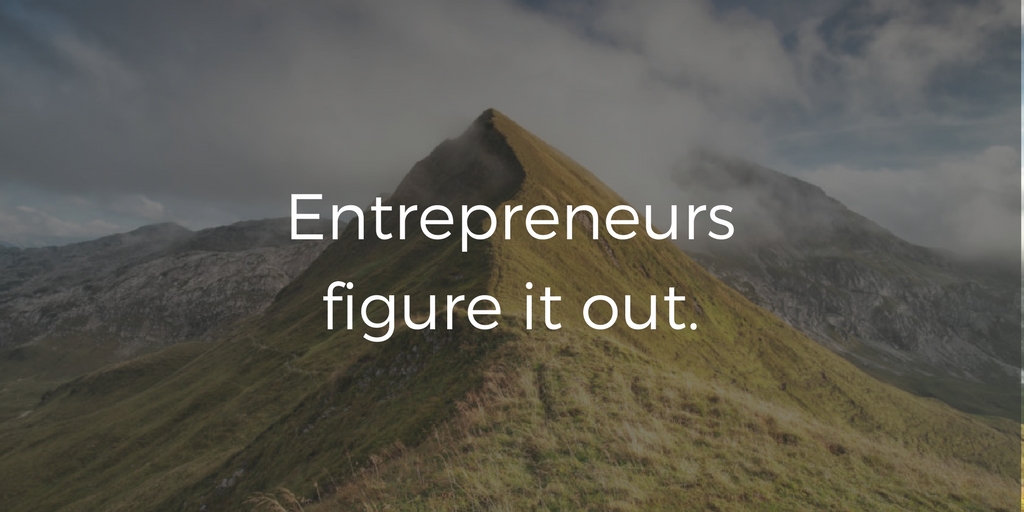I’ve noticed something that all successful entrepreneurs say when they are interviewed about how they grew their crazy startups into big businesses.
You also hear it in interviews with Olympic gold medal athletes. And when successful individuals talk about their humble roots and surprising successes.
They all say they were lucky to have been at the place and time to be able to start their journeys. Many thank their parents for their support and for being good examples (or not, in some cases.)
Then the interview comes to this question:
“OK. So how was it that you were there at the same time as many others who tried and didn’t succeed, but you made it happen without any experience, advantages or resources?”
They all say the same thing: “I don’t know. I guess we just figured it out.”
These successful entrepreneurs achieved big things by doing something that other smart, hard-working and capable people didn’t.
They figured it out.
They figured it out before there was an obvious market for their product or service.
They figured it out when it got really hard and everyone else gave up.
They figured it out before there were proven playbooks that explained the steps to follow.
They figured it out by getting the best help they could find.
They figured it out by doing things that others considered impossible or “crazy.”
How did they become a successful CEO, author, celebrity or skier? They all say they just didn’t give up when it was really hard to get to the next level.
I had the opportunity to interview NFL Hall of Fame quarterback Kurt Warner and his wife Brenda on stage at a conference last year. In just a few years he went from working night-shift jobs to being a third-string quarterback to leading the St. Louis Rams to an improbable Super Bowl win.
I asked him, “Seriously, how did you not give up when there were no signs you were going to be successful?” He has been answering that question for 20 years.
Here’s what he said: “I knew I was good, even when others didn’t see it, and I really wanted to be an NFL quarterback. I just hadn’t proven to myself that it wasn’t possible. So I kept trying.”
To Kurt, it wasn’t impossible, so it was possible. That’s all that mattered.
Of course, there are countless stories of entrepreneurs and athletes who tried and didn’t make it. It was possible until it wasn’t.
The successful entrepreneurs just figured out things the unsuccessful ones didn’t.
Immigrants had to figure it out when their obstacles were daunting. That’s why immigrants, misfits and other underdogs often make great entrepreneurs. Many venture capital investors even look for founders who have challenging backgrounds and humble beginnings.
Americans used to have a more “figure it out” attitude in general. We were mostly immigrants, pioneers and entrepreneurs 50 or 100 years ago. My parents and grandparents lived through World Wars, depressions, polio and other big challenges. Figuring it is just what they did.
I came from a “figure it out” family. My kids rolled their eyes at me when I told them to “figure it out,” one of my Dad-isms. Now they are young adults and they appreciate it a little.
Now you can be shouted down if you say tell people to “figure it out” for themselves, own the problem and take responsibility for it all, even when circumstances are challenging.
I think figuring things out for themselves is #1 thing we ought to be teaching our kids. One-click apps that deliver anything in five minutes along with helicopter parents and ever-expanding government entitlements only train us to be dependent and take the easy way out. We’re not prepared when things get really hard.
Infusionsoft CEO Clate Mask told me that when his Mom would give him a hard project he would ask questions about how to do it. She didn’t answer his questions, she just said, “Clate, figuring it out is part of the job. I know you can do it.”
Successful entrepreneurs are often called the “crazy ones.” We’re not crazy. We’re just doing the things that normal people don’t do.
We are attracted to where it’s not obvious or easy. That’s where the biggest opportunities are.
If it’s figure-outable, we’ll figure it out.
